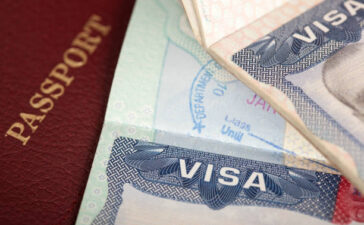Understanding How to Apply for Jobs in Canada is one of the most important steps in a successful immigration process. It can also boost your chances of gaining permanent residency through an immigration program.
Advertisement
To find a job in Canada, you must first learn how to adapt your resume to the Canadian market. This includes addressing your cover letter to the hiring manager directly.
Understanding Canadian Work Authorization
There are many job opportunities in Canada for skilled and experienced workers. However, some types of jobs require a work permit. You may be able to obtain a work permit through an employer, or you might have the opportunity to apply for permanent residency under Express Entry if your occupation is on the In-Demand Occupation List.
Moreover, some professions like nursing or teaching require a license to work in. You must also verify that your educational credentials are up to date, a process that can be costly and time-consuming.
If you have a valid post-secondary degree from a Canadian institution, you might be eligible for an open work permit. This type of work permit gives you the flexibility to work for any Canadian employer.
However, you need to submit a Labour Market Impact Assessment (LMIA) to clarify that there is no indigene who can fill the position before your employer can hire you. You should also have sufficient financial resources to support yourself and your family during the duration of your stay in Canada.
Advertisement
Crafting a Winning Canadian-Style Resume
As an international job applicant, you will need to write a Canadian-style resume that highlights your work experience and professional qualifications. This document is a critical first step in your Canadian employment journey, so it’s important to take the time to craft an effective resume.
When writing your resume, keep in mind that Canadian employers value results and achievements. Therefore, whenever possible, include quantitative information like percentages or numbers to demonstrate your skills and abilities.
The resume should begin with a professional summary or objective, followed by your work experience in reverse-chronological order. Typically, the resume includes a “projects” section to showcase your skills and responsibilities. Be sure to provide the project name, description, and outcome, as well as your role in the project.
Your education and certifications are also important sections to include. However, it’s best to tailor this information to the specific job for which you are applying. For example, highlighting your fluency in English or your mastery of particular computer applications will be more useful to a recruiter than listing your high school education and grades.
Effective Job Search Strategies for International Job Seekers
It is not uncommon for Canadian employers to receive dozens or even hundreds of applications from international job seekers. For this reason, applicants must focus on optimizing their resumes for each application they submit. This means tailoring their resumes for each position to highlight the work experience that is most relevant. In addition, they should also consider taking advantage of resources such as Canada’s Job Bank to identify the types of jobs in demand across provinces.
Another effective approach for foreign workers is networking. This can be done through reaching out to contacts who have connections in their field of interest or by attending expat job fairs. This approach can help a candidate get in front of a hiring manager and pitch their skills directly.
Moreover, prospective foreign workers should research the types of jobs that are in demand in their chosen province. This can help them understand the requirements for working in their field of interest and determine if there are any gaps in their current skill set. This information can be used to upskill in advance of applying for a job in Canada or to plan a path towards permanent residency.
Preparing for Canadian Job Interviews
During interviews, you will want to showcase your ability to effectively communicate in English and highlight any relevant professional experience. You will also need to understand if there are any licenses or certifications you might need to secure your job in Canada. This will vary based on the industry, corporate type, and provincial jurisdiction.
It is a good idea to have employment reference letters, joining and termination letters, pay stubs, tax returns, and other documents that can verify your work experience, educational qualifications, and identity. You will also need to complete an Educational Credential Assessment (ECA) to ensure that your education credentials are equivalent to Canadian qualifications.
It is important to prepare well for job interviews as this will make your interview more comfortable and increase your chances of landing the job. Research the company and position you are applying for, practice common interview questions, and tailor your resume to each job you apply for to show how your skills and experiences align with that specific role. Following up after an interview is also a good way to demonstrate professionalism and show your interest in the role.
Overcoming Challenges as an International Job Applicants
Relocating overseas for work can be challenging for even the most seasoned travelers. Unlike visiting friends and family abroad, working on an international assignment requires professional skills in a new culture, language and business environment.
In addition to preparing for your job interview, you should familiarize yourself with the local employment market and culture in Canada. It’s important to know whether your career is in demand and what the local expectations are for your position.
Additionally, you’ll need to know the specific requirements for your work permit – whether it’s for on-campus or off-campus employment. For example, if you’re in a program that allows you to become a permanent resident of Quebec (PEQ), you’ll need to have high-level fluency in French.
This is a challenge for many people who have studied the language, but it’s not impossible. With sufficient preparation and research, you can achieve your goal of understanding How to Apply for Jobs in Canada. This will diversify your global work experience and improve your chances of qualifying for permanent residency in the country.




